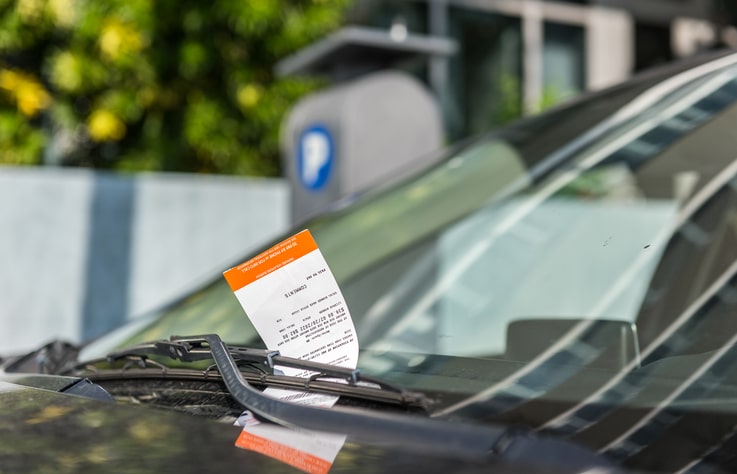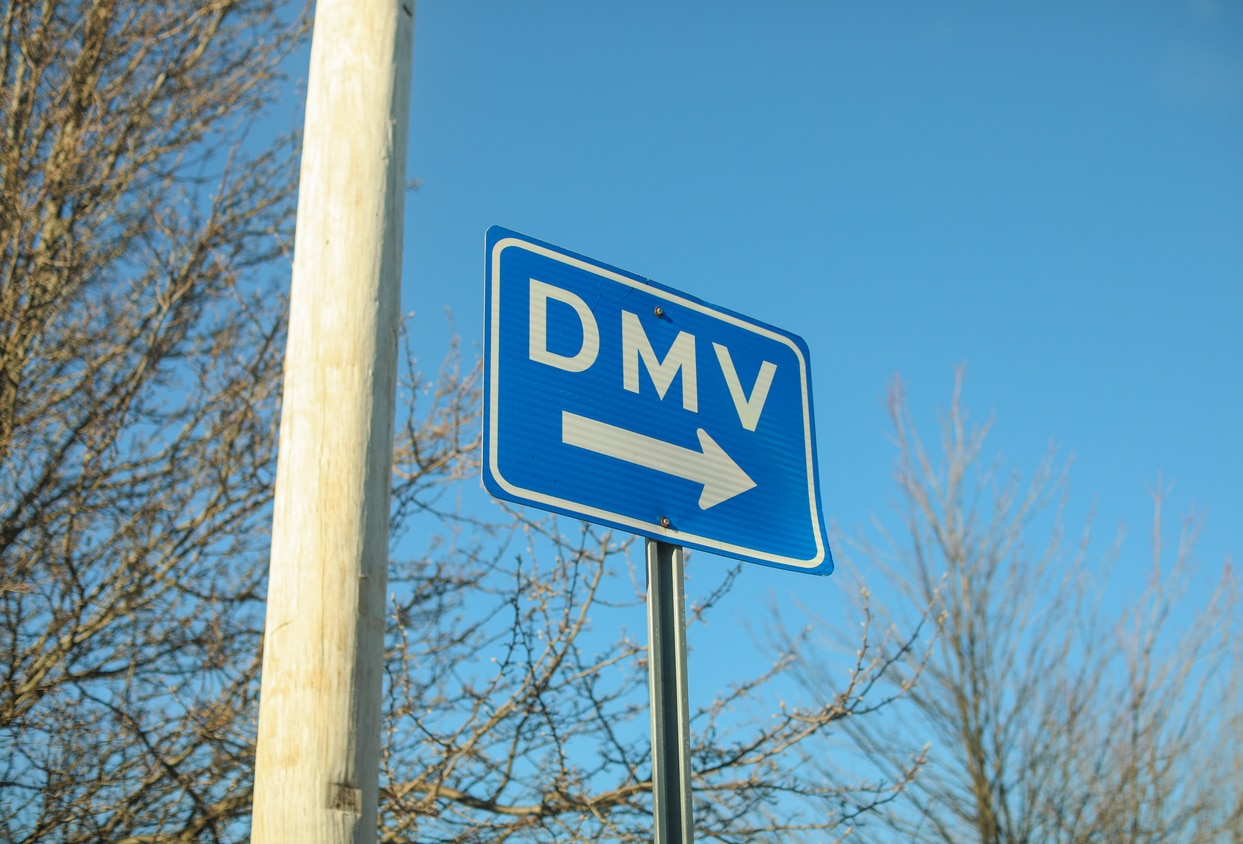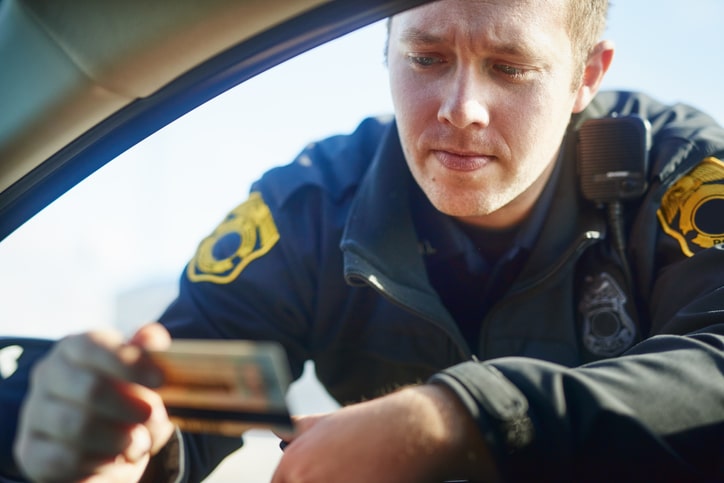You can lose your driver’s license for various reasons in Missouri. Some driver’s license suspensions…

The Difference Between Civil and Criminal Traffic Offenses
Traffic violations are common on Kansas and Missouri roads. The National Highway Transportation Safety Administration surveyed Kansas law enforcement agencies and found that officers conducted more than 39,000 traffic stops in 2023, resulting in over 27,000 arrests and citations. The Missouri Attorney General’s Office reports that over 1.3 million traffic stops occurred in 2023, with more than 57,000 arrests.
Both Kansas and Missouri make a distinction between civil and criminal traffic offenses. This post will address how civil and criminal offenses are different, why these differences are essential, and how to handle each type of charge. If you face traffic violation charges in Kansas or Missouri, a traffic attorney can help you understand the charges and what to expect from the court system.
Defining Civil vs Criminal Traffic Offenses
Both Kansas and Missouri classify traffic offenses into separate civil and criminal categories. A particular offense’s category may depend on factors like the danger posed to the public and the driver’s state of mind at the time of the offense, such as whether they acted intentionally or negligently.
Civil Traffic Offenses

Civil offenses, also known as “infractions,” are considered less severe than criminal offenses. By definition, they are not “crimes,” so they have fewer punitive consequences. They typically result in a piece of delicate and negative information on your driving record.
Examples of civil traffic offenses in Kansas and Missouri include:
- Speeding
- Running a red light
- Failure to yield
- Parking violations
- Improper vehicle registration
Criminal Traffic Offenses
Criminal offenses are more serious. They often involve a “criminal” state of mind, meaning a driver acted intentionally or recklessly. Both Kansas and Missouri classify criminal traffic offenses as either misdemeanors or felonies. Misdemeanors are less serious than felonies and carry less severe penalties. Either type of offense may result in fines, jail or prison time, and a criminal record.
The laws are slightly different in each state. Generally speaking, traffic misdemeanors may include the following:
- DUI/DWI
- Driving with a suspended license
- Reckless driving
- Fleeing a police officer
Traffic felonies may include:
- Traffic offenses are usually considered a misdemeanor after two or more prior convictions for the same offense, such as a third DUI/DWI conviction.
- DUI/DWI with child endangerment
- Fleeing an accident scene that involves death or serious injury
- Fleeing an accident that you caused, also known as a hit-and-run
Burden of Proof for Civil and Criminal Traffic Offenses
In any type of traffic case, whether you are charged with running a stop sign or something much more severe, the state is burdened to prove you are guilty of the offense. Criminal cases have a much higher burden of proof than other legal proceedings. Prosecutors must prove your guilt “beyond a reasonable doubt.” This means that a judge or jury must conclude that every reasonable explanation for what happens involves you committing the offense.
Key Differences Between Civil and Criminal Traffic Offenses
Civil and criminal traffic offenses have several significant differences.
Criminal Intent or Lack Thereof
Some civil traffic offenses do not require proof that you intended to commit an offense or acted recklessly. Police can cite you for running a red light, for example, regardless of whether you did so on purpose or by accident.
Criminal offenses often require evidence of deliberate or reckless behavior. To convict someone of a serious offense like vehicular manslaughter, prosecutors may have to prove that a driver was operating their vehicle recklessly.
Types of Legal Proceedings
Different cities and counties may have different rules and procedures for traffic cases. Municipal courts handle many civil traffic offenses, and proceedings in municipal or traffic courts are often less formal than those in other courts.
County-level courts typically hear criminal cases. These are more formal, with strict rules governing procedure and evidence.
Penalties
Penalties for a civil traffic offense may include a fine, points on your license, or driving school. A conviction for a criminal traffic offense could consist of a jail or prison sentence, a fine, probation, license suspension, and a criminal record.
Why the Difference Between Civil and Criminal Matters
Civil and criminal offenses differ in the impact they can have on your life. This may lead to differences in how you respond to the charges.
Impact on Your Life
A conviction for a civil offense can affect your driving record and insurance rates. This information could also end up in your credit report.
Criminal offenses tend to have a much more significant impact. Aside from fines, probation, and possible jail time, you will have a criminal record, which can affect your options for employment and housing.
Financial Implications
You may have to pay fines for either type of traffic offense. Criminal convictions tend to have higher fines, and you might have to pay restitution if you caused injuries or property damage.
Legal Representation
An attorney is essential in any criminal proceeding, which may involve complicated legal and procedural questions. You must prepare defenses to the state’s charges, such as challenging the evidence in a DUI/DWI case. A lawyer can help you do this. They know how to work with prosecutors and judges.
You might be able to deal with a civil offense independently, although consulting with a lawyer is always a good idea. A court might allow you to deal with a minor infraction by paying a fine and attending traffic school. Deleting infractions from your record might even be possible if you stay out of trouble.
Talk to a Kansas or Missouri Traffic Lawyer to Learn More
A conviction for a traffic-related offense in Kansas or Missouri, whether civil or criminal, can have significant consequences in some cases; the consequences might follow you for years or longer. An experienced and knowledgeable traffic attorney can guide you through the legal system and protect your rights.
Sloan Law Office offers compassionate legal representation to people in the greater Kansas City area who are facing charges for DUI/DWI or other traffic-related offenses. We will work with you to find the best possible defense for your case. Contact us today to schedule a confidential and free consultation to discuss your case.




This Post Has 0 Comments